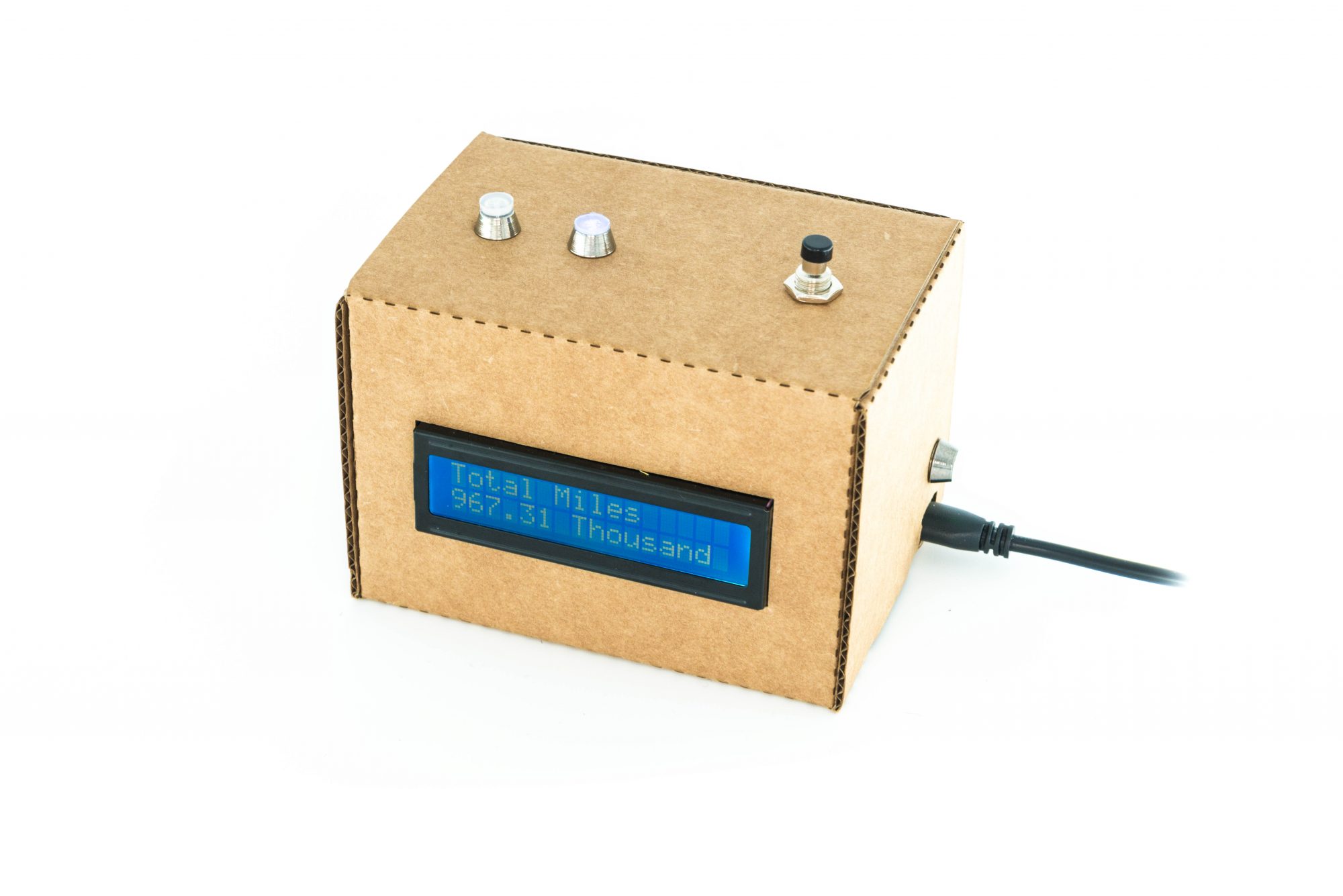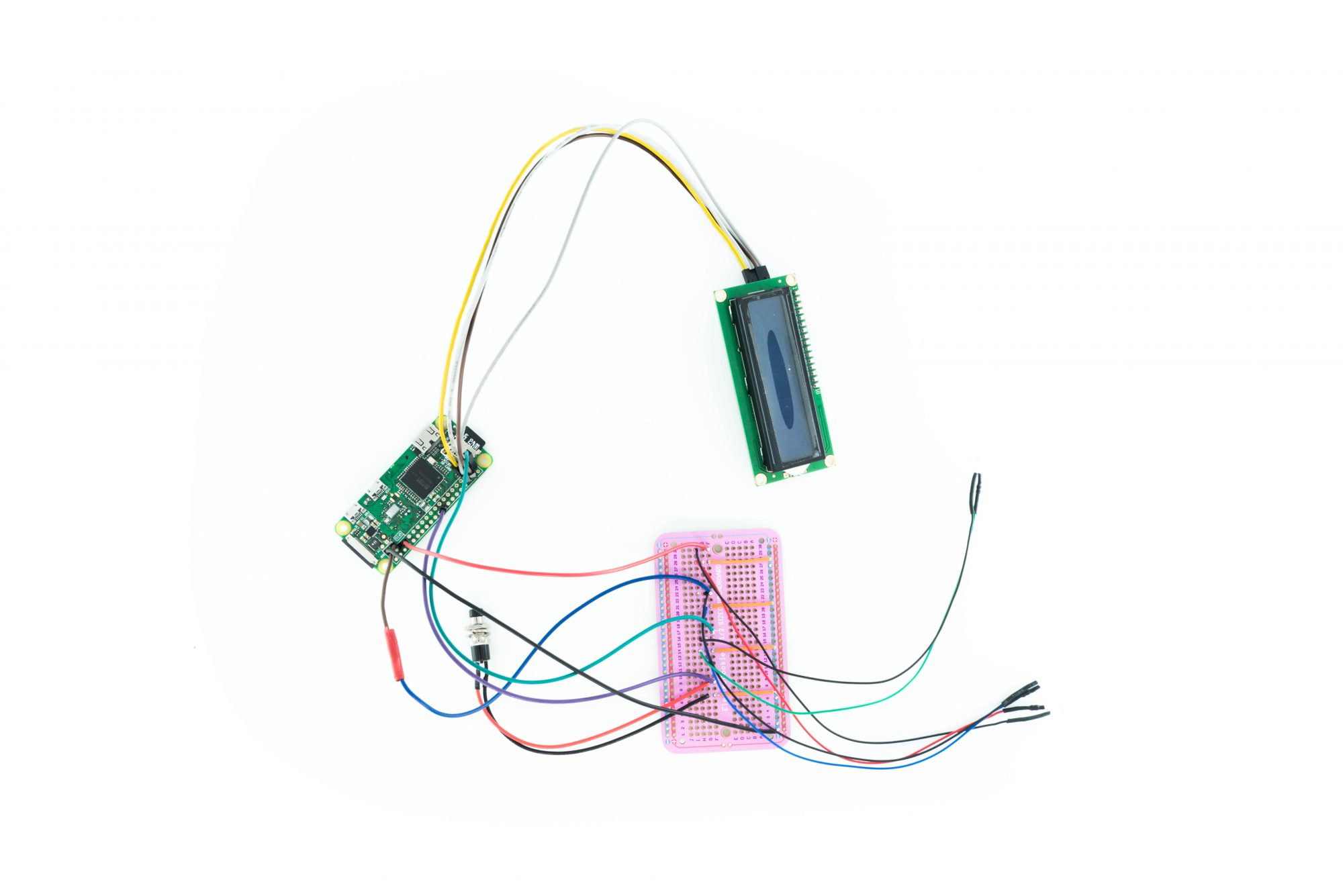Thesis
Investigating Opaque Infrastructures with Discursive Design
Abstract
The information we access on the internet appears immediately but usually lives far away. A search for holiday decorations might take you from a server in Montana to India to Northeastern Canada. The Desktop Odometer is a device that shows users the distance they travel when browsing the web by tracking the total miles between their current location and the server from which they are requesting information. Upon connecting the Desktop Odometer to their computer via a web browser extension, users are able to see how far information travels while surfing the web in real time.
The Desktop Odometer is a discursive design artifact that allows users to observe certain aspects of the Internet’s elaborate and largely opaque infrastructure in relation to how they use it. Recognizing the vast distances information travels while one navigates the web brings this facet of the Internet into the foreground of a user’s experience.
I describe the three approaches I used to investigate opaque infrastructures: the first was making the Desktop Odometer itself, the second was selling the Desktop Odometer on Amazon.com as a way to elicit user-generated feedback about the inner workings of the internet, and the third was gaining firsthand experience of the seller’s side of Amazon.com.
Download the full thesis publication.
Committee
- Audrey Desjardins, Chair (Interaction Design)
- Karen Cheng (Visual Communication Design)
Bio
Friend Code: SW-7519-4085-1119
Publications
In Proc. DIS’20, New York, ACM Press, in press. “Investigating Opaque Infrastructures: The Desktop Odometer” _Viny, J.E., Desjardins, A.
In Proc. CHI’20, New York, ACM Press, in press. “IoT Data in the Home: Observing Entanglements and Drawing New Encounters” (2020) _Desjardins, A., Biggs, H. Key, C. Viny, J.E.
In Proc. CHI’19, New York, ACM Press, in press. “Alternative Avenues for IoT: Designing for Non-Stereotypical Homes” (2019) _Desjardins, A., Viny, J.E., Key, C., Johnston, N.
Awards
- ACM CHI 2019 Honorable Mention Award (2019)
- UW Division of Design Striker Travel Award (2019)
- Frank and Catherine Doleshy Endowed Fellowship (2018)
- University of Washington Top Scholar Grad Award (2018)
Education
- Master of Design, University of Washington, 2020
- Bachelor of Arts, Economics and Studio Art, Ohio State University, 2016
Commentary
Read the full commentary about Jeremy Viny by Heidi Biggs.
The Desktop Odometer began as a playful way to externalize and quantify the vast distances information travels through the internet (yes, the internet is material, data goes real places, and infrastructures support the journey). The Odometer looks a little bit like a digital alarm clock made of cardboard. It connects to a user’s computer and, using a browser extension, it calculates the distance someone’s queries travel as they browse the internet; The Odometer then displays the miles data has traveled on an LCD screen, operating much like the odometer of a car. It is designed to be discursive — a provocation — meaning The Desktop Odometer doesn’t solve a problem, it prompts reflection and discussion. While initially only intended to make information infrastructures visible, after creating and productizing The Desktop Odometer, Jeremy decided to sell it on Amazon.com and to use customer reviews as a platform for user feedback and co-design. On Amazon.com, the Odometer became an insider informant, allowing Jeremy to observe how a discursive artifact behaves, or more accurately, misbehaves and causes mischief in a sanctioned online marketplace, opening a second line of inquiry about privacy and commercial infrastructures.
– Heidi Biggs




